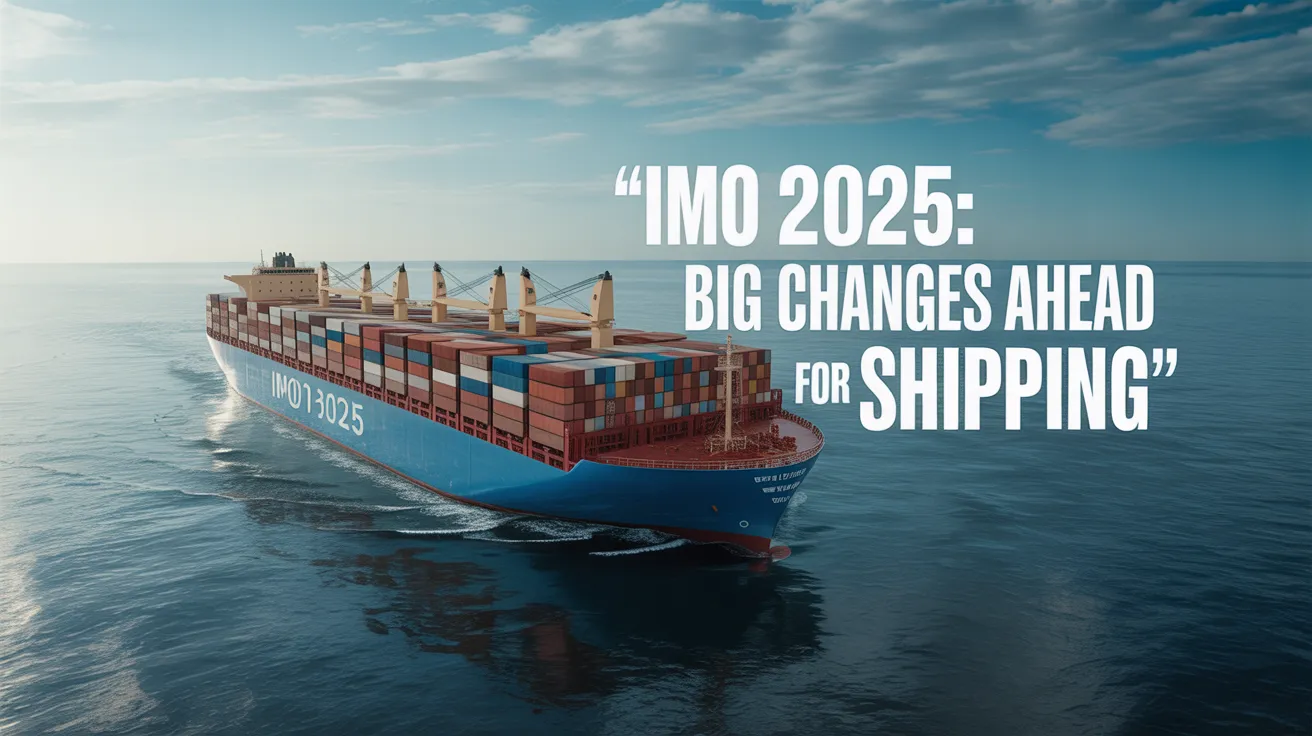The shipping industry is at an inflection point to change to be more sustainable and greener, adapting to the net-zero emissions. When you go in-depth, you may think about why there is a sudden transformation and why the maritime industry is bound to align with the stricter compliance standards.
The shipping industry is at an inflection point to change to be more sustainable and greener, adapting to the net-zero emissions. When you go in-depth, you may think about why there is a sudden transformation and why the maritime industry is bound to align with the stricter compliance standards.
IMO (International Maritime Organization), a specialized United Nations agency that has governed shipping industries globally since 1948, has released a set of new regulations for transforming the shipping sector into a net-zero framework. These regulations, if set to adapt by October 2025, could transform international shipping into global sustainability and climate targets.
For shipping companies, these regulations are deemed to be a bigger step than mere compliance with the law because they signify a change in the way maritime commerce will conduct business, get funded, and be regulated in the future.
The Impact of New Regulations on Global Trade Shipping
As mentioned earlier, the IMO is the United Nations regulatory body responsible for regulating global shipping. Earlier MARPOL Annex VI amendments contained regulations like IMO 2020 that were mainly on the sulfur content of fuels. In accordance with IMO 2025 regulations, changes are brought in the greenhouse gas emissions, stepping towards a Net-Zero Framework.
Most of the requirements will be for ships with a gross tonnage of 5000 or above. This time, they are also targeting greenhouse gas emissions, which takes forward the IMO's 2023 Greenhouse Gas Strategy. This sets a goal of achieving net-zero emissions from global shipping "by or around 2050."
The IMO's new regulations require that the following changes be implemented by 2050:
- 20-30% reduction in GHG emissions by 2030, and 70-80% by 2040, compared with the previous levels.
- Ships 5,000 gross tonnage (GT) and above will fall under most obligations
- Ships will be strictly adhered to transform to cleaner fuels, with at least 5% of global shipping’s energy coming from net-zero fuels by 2030
- Reporting on fuel consumption, carbon intensity, and use of alternative fuels will be enhanced
- Proposal for carbon levies and market-based mechanisms are under consideration
Steps Towards Maritime Sustainability in 2025
Once they come into force, these regulations will be made sure to be enforceable on the shipping industry. This could result in some major problems in the shipping sector. For example, there could be a likelihood that noncompliant ships could be detained or refused at any port, fined and penalized, and put under increased regulatory scrutiny.
Noncompliance could also result in monetary losses, for example, higher operating costs, access limitations, and added finance charges. Although there is no assurance regarding the challenges mentioned above, having a clear picture of what could be the possible outcomes of not complying with the regulations is crucial for the future.
Although there might be some challenges that may affect the shipping sector as a result of the IMO 2025 Regulations, certain opportunities are also along the way. Those who are adapting earlier to the regulations will acquire competitive advantages like low-carbon fuels and efficient technology. Not only that, but they can even get access to long-term operational savings through improved efficiency and optimized routing.
Additional solutions with the rise of alternative fuels such as ammonia, methanol, biofuels, and hydrogen are also a benefit for the industries that comply with these regulations properly.
Experts are recommending shipping firms take a strategic path that not only meets short-term compliance requirements but also highlights a long-term roadmap.
Immediate Steps for Sustainability:
- Conduct internal compliance audits to identify gaps in emission reporting and fuel quality.
- To be prepared for compliance, take advice from technical and maritime law advisers.
- Adjust supply contracts with suppliers, vendors, and charterers to incorporate compliance requirements across the supply chain.
Long-Term Roadmap for Maritime Industry:
- Develop corporate governance structures within the regulated company that integrate sustainability into company policy.
- Spend capital on dual-fuel engines, alternative propulsion systems, and digital emissions monitoring systems.
- Introduce sustainability reporting processes to be ready for wider ESG expectations.
- Stay informed about new developments from the IMO, since economic measures and enforcement mechanisms are still in the process of being finalized.
Global Trade at the Crossroads of Maritime Compliance
The shipping industry transports over 80% of world trade by volume and is thus at the heart of international commerce. Shipping also generates close to 3% of global greenhouse gas emissions.
Thus, the IMO's 2025 regulations remain a crucial step toward closing the gap between commerce and climate. The structure is likely to speed up the decarbonization of global shipping by tightening emission rules and implementing economic incentives.
Experts are convinced that the coming years are going to be crucial for the shipping sector. Companies that invest proactively in sustainability and regulation not only follow the law but also demonstrate their market position in a rapidly changing trading environment.
The implementation of the IMO 2025 standards will be one of the most dramatic changes in maritime policy in decades. While there are still challenges that need to be overcome, most of which relate to fuel availability, technological readiness, and cost, the way ahead is clear.
Planning is now an option for shipping companies; as for staying compliant with the regulations, it is necessary to ensure that industries are investing in cleaner technologies and proactive engagement. This can not only benefit by staying compliant but also help stay competitive and resilient in the coming years.
